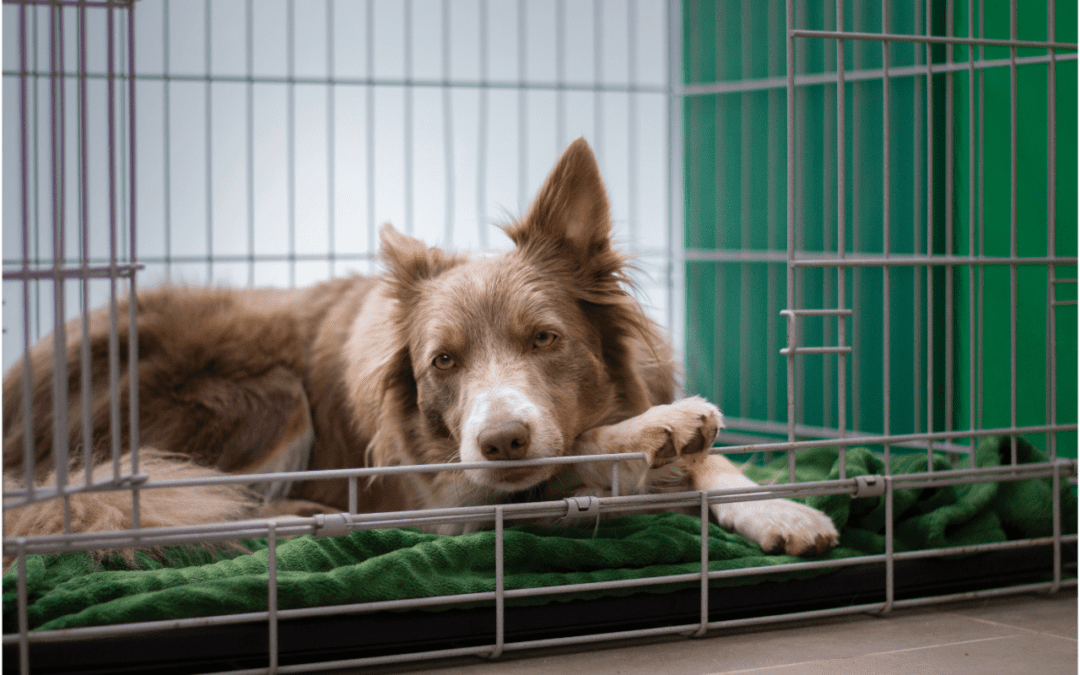Lower Your Pet’s Stress by Giving Them a Recovery Space
If your pet is not already crate trained and has an upcoming surgery, you might want to consider getting them familiarized with the concept of being in a crate. Although dog owners may feel guilty about crate training their dog, there are many benefits to introducing a crate to your dog’s everyday life. Dogs instinctively seek small spaces to create protective shelters for themselves, so you shouldn’t feel guilty in giving them a safe space to retreat to, even if it takes the shape of a crate.
Overall Benefits of Crate Training Your Dog
Crate training your dog early on in their life can prevent introducing unnecessary stress later on. Because dogs habitually seek small spaces to feel safe and protected, a crate is the perfect safe haven for them to retreat to. When dogs are tired, stressed, or recovering from surgery or illness, a dog will be most appreciative when they have something familiar to go back to. In this case, their crate will be their best safe space and will make their homecoming from post-operation the most comfortable it can be for them.
Crate Training Benefits for Dogs Post-Op
Crates are useful in many ways and situations, including being a training tool for puppies and safe havens for senior or recovering dogs. They can also be a lifesaver during emergencies or travel. Crates can be particularly useful for dogs who have undergone surgery.
After surgery, your pet should refrain from being active for several days. Placing them in a crate can help decrease their activity while you are away or unable to monitor them.
Tips for Successful Crate Training
If your pet isn’t familiar with the concept of being in a crate, it’s a good idea to get them acclimated before the operation. The most important thing to remember when crate training your dog is to ensure the experience is always a positive one. Never use your crate as a punishment, as that will leave a negative experience on your dog and will deter them from using the crate.
One way to begin your dog’s crate training is to try feeding their meals or treats in their crate. This way, they will begin to associate that going into the crate is a positive reinforcement and that they will be rewarded each time. It may take a while for your dog to get accustomed to the crate, but don’t give up. Continue to make crate training a positive experience for them and be diligent about crate training to ensure the greatest chance of success.
Overall, crate training can be incredibly beneficial and handy when it comes to everyday life for your dog. Having a crate readily available for them can help soothe their anxiety and give them a safe space to retreat to when they encounter a stressful situation. Especially after a post-operation surgery, a crate, or a recovery space, will be one of the best homecomings your dog can come home to.

